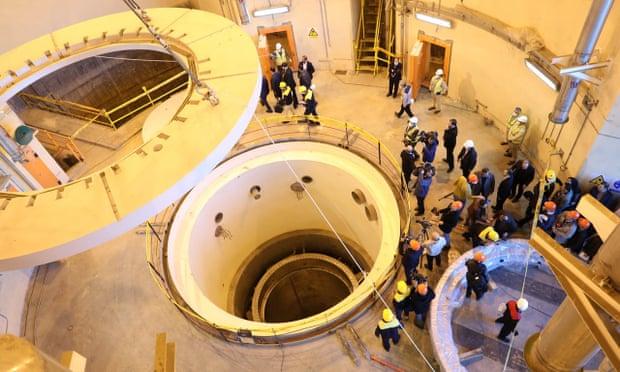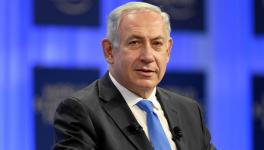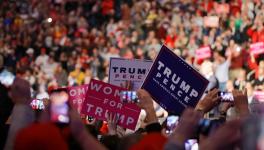Israel Gets Boxed in as Iran Issue Surges

Iran’s nuclear water reactor in the city of Arak
“Iran’s scientific and defense policies won’t change because of the assassination of one scientist or general,” the spokesman of the Iranian government Ali Rabiei wrote calmly and firmly in a statement Sunday posted on the official website. Iran “shouldn’t fall into the trap of linking the assassination to past nuclear negotiations,” he said.
One main objective of Israel in assassinating Mohsen Fakhrizadeh, the veteran nuclear scientist, remains unfulfilled — provoking Iranian retaliation that would trigger a military conflagration at regional level involving the lame-duck Trump administration.
Iran’s Foreign Minister Javad Zarif since underscored in an interview with the Entekhab news website that while “Iran and the US will continue to have fundamental differences,” the tension between Tehran and Washington needn’t continue after President Trump leaves office. “Under Trump’s presidency, Iran and US tensions rose to a 40-year peak. It seems unnecessary for this situation to continue,” Zarif said.
Zarif implied that Tehran intends to engage with the Joe Biden presidency. A second Israeli objective is also unraveling. Both Israeli Prime Minister Benjamin Netanyahu and Trump oppose Biden’s intention to rejoin the Iran nuclear accord.
Netanyahu and Trump’s attempt to forestall US-Iran negotiations faces a spectacular defeat. There is now a renewed sense of urgency that the Biden administration must prioritise its engagement with Iran.
A groundswell of opinion in the US favours engagement with Iran, while there is general agreement that Israel did carry out the killing of the Iranian scientist. Not even the Israeli lobby has staked a claim that Fakhrizadeh’s killing would mean the end of the road for Iran’s nuclear programme. In a riveting piece in the New Yorker magazine, Robin Wright wrote,
“The glaring irony of the sensational operation is that it will probably have a negligible impact on Iran’s nuclear program. “No individual is crucial in a nuclear program like this anymore,” Bruce Riedel, a former senior U.S. official who served in the National Security Council, the C.I.A., and the Pentagon, and who is now at the Brookings Institution, told me. “The Iranians mastered that technology twenty years ago. This guy was important, no question, but he was not crucial to it. Nobody is crucial to it anymore. That’s why describing this as a devastating blow is nonsense.”
Wright adds, “The crucial factor today is that Iran has the knowledge needed to fashion a nuclear device, but it lacks the material—highly enriched uranium or plutonium—necessary to build nuclear bombs, Daryl Kimball, the executive director of the Arms Control Association, in Washington, D.C., told me. “Whatever role Mr. Fakhrizadeh has played in the Iranian nuclear program, his assassination will not have material effect on Iran’s capability to amass more enriched uranium,” Kimball said. The enrichment program falls under the Atomic Energy Organisation of Iran, which is headed by Ali Akbar Salehi, an M.I.T. graduate.”
Clearly, Netanyahu has lost the plot. That probably explains why there is no triumphalism in Israel itself. However, the assassination could make it more difficult for Biden to reenter the nuclear agreement with Iran. The informed opinion in Europe is that France, Germany and the UK must move quickly to set out a roadmap for Iran and the Biden Administration to come back into compliance with the nuclear deal.
Six of Europe’s leading diplomats got together to propose that the UK, France and Germany (known as the E3), should coordinate a joint public statement urgently setting out what both Washington and Tehran must do to end the impasse.
Clearly, there is a sense of urgency felt in parts of Europe that the momentum towards potential US-Iran reconciliation can only be shored up by getting the two countries back to the negotiating table quickly.
Thus, as a first step, the remaining signatories to the nuclear deal – France, Germany, the UK, Russia, China and Iran – will meet at joint commission level in Vienna on 16 December to discuss how to keep the nuclear deal alive.
The road map drafted by the six European diplomats, coordinated by the European Council on Foreign Relations, may be picked up at the meeting in Vienna which aims to overcome the sequencing difficulties that face any reopening of the US-Iran negotiations.
The road map urges that the joint commission should first call on the Biden administration, once inaugurated, to announce that the US will rejoin the nuclear deal, and then for the US and Iran to agree on steps for mutual re-compliance. To quote from the statement by the six European diplomats,
“The joint commission should also call on the United States to reissue waivers for civil nuclear cooperation [revoked under Trump] as soon as possible to facilitate Iran’s roll-back of nuclear activities and the modernisation of Iran’s Arak heavy water reactor.”
“Between now and 20 January (Biden’s inauguration), the E3 (France, UK and Germany) and the EU should scope out a clear pathway for Iran to reverse its nuclear activities. Europeans should stress to Iran that such steps will be a necessary component for the United States to fully return to the [deal] under a Biden administration.”
“This process should involve an extensive discussion with Iran on technical steps to roll back its nuclear programme, the realistic contours of sanctions relief under a Biden administration, and European measures to support Iran’s economy.”
Meanwhile, the EU has condemned the killing of Fakhrizadeh as “a criminal act”, which runs “counter to the principle of respect for human rights the EU stands for.” Moscow and Beijing also condemned the killing. The British Foreign Secretary said on Sunday that while “still waiting to see the full facts to address the full facts of what’s happened in Iran … we stick to the rule of international humanitarian law which is very clear against targeting civilians.”
Again, Iran’s neighbours have closed ranks to condemn the killing, including Turkey, Qatar, Oman, Kuwait, Jordan. Surprisingly, the UAE, which is reputedly Israel’s closest ally in the Persian Gulf, condemned “the heinous assassination” of Fakhrizadeh and warned that the killing “could further fuel conflict in the region.”
All in all, Israel stands utterly isolated in the region. This tops up the rebuff administered by Riyadh recently to the joint US-Israeli entreaties at the recent secret meeting on November 23 in Neom between Saudi Crown Prince Mohammed bin Salman, Netanyahu and the US Secretary of State Mike Pompeo.
In the circumstances, it remains to be seen how long the jubilation over the Abraham Accords will survive once Trump’s back is turned. The hurried visit by Jared Kushner, Trump’s son-in-law, to Saudi Arabia, with hardly seven weeks left for the lame duck presidency, shows the deep disquiet in Washington and Tel Aviv. If Kushner doesn’t manage to pull off Saudi recognition of Israel, all bets are off.
The crux of the matter is that even before Biden’s inauguration, the European powers plan to intensify contacts in the US Congress and with Saudi Arabia and the UAE. They hope to reassure the hostile states that there are advantages to them out of reviving the Iran nuclear deal, including possible stabilisation efforts in Iraq and Yemen. Russia and China also favour such a regional reconciliation.
Get the latest reports & analysis with people's perspective on Protests, movements & deep analytical videos, discussions of the current affairs in your Telegram app. Subscribe to NewsClick's Telegram channel & get Real-Time updates on stories, as they get published on our website.
























